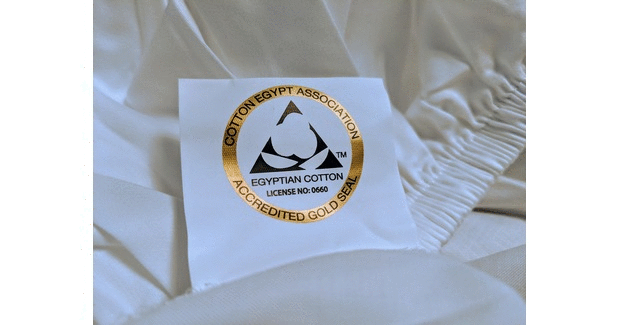Egyptian Cotton Accreditation

Egyptian cotton is a type of cotton that is grown in Egypt. It is considered to be some of the finest and most luxurious cotton in the world due to its long, strong fibers which produce a high-quality thread. This makes it ideal for use in high-end linens, clothing, and other textile products.
CEA
The Cotton Egypt Association (CEA) is an organization that represents the cotton industry in Egypt. It is made up of cotton growers, ginners, merchants, spinners, weavers, and other industry stakeholders. The main objective of the CEA is to promote and protect the interests of the Egyptian cotton industry, both domestically and internationally. They work to improve the quality of Egyptian cotton and increase its competitiveness in the global market, as well as promoting the use of Egyptian cotton in textile and clothing production. They also provide support and services to its members, such as market analysis and research.
ECA
Egyptian Cotton Accreditation (ECA) is a program established by the Cotton Egypt Association (CEA) to ensure that cotton products labeled as "Egyptian cotton" are authentic and meet certain quality standards. The program was established in 2005, and its aim is to protect the reputation of Egyptian cotton and prevent the use of the term "Egyptian cotton" on products that do not meet the standards of the ECA. To become accredited, a company must demonstrate that it uses only 100% pure Egyptian cotton in its products, and that the cotton has been grown, ginned, and processed in Egypt according to specific standards set by the CEA. The ECA also conducts regular inspections and audits of accredited companies to ensure that they continue to meet these standards. The ECA logo is a mark of quality that is recognized around the world, and it is only given to companies that have met the rigorous standards of the program and have been granted accreditation by the CEA.
ECA Process
-
Application: Companies interested in becoming accredited must submit an application to the CEA. The application must include information about the company and its products, as well as documentation demonstrating that the cotton used in its products is 100% pure Egyptian cotton grown, ginned, and processed in Egypt.
-
Inspection and Audit: After the application is received, the CEA conducts an on-site inspection of the company's facilities and processes to verify that they meet the ECA standards. This includes checking the company's records and samples of their cotton, as well as conducting interviews with company representatives.
-
Evaluation: The CEA evaluates the information and documentation provided by the company and the results of the inspection and audit to determine whether the company meets the ECA standards.
-
Decision: If the company meets the ECA standards, it is granted accreditation. If not, the company may be given a chance to correct any deficiencies before being
-
Surveillance audits: After certification, the applicant's production facility and supply chain will be subject to ongoing surveillance audits to ensure that they continue to meet the requirements of the Egyptian Cotton Standard